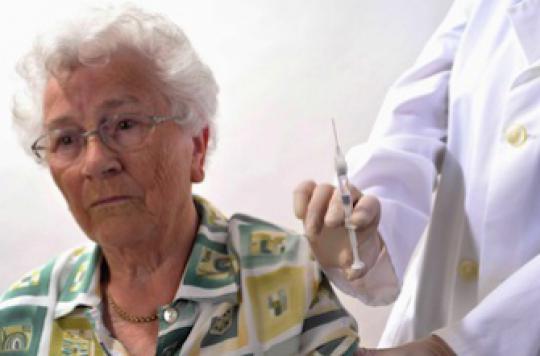Vaccinating those over 60 would halve the risk of shingles and associated chronic pain. Recommended in France, this vaccination is still not available.

Shingles, which is characterized by a painful rash, is caused by reactivation of the chickenpox virus. This occurs many years after contracting chickenpox, as a result of aging or immunosuppression.
50% risk after 80 years
Almost 90% of children have chickenpox and more than 20% of adults after age 50 are likely to develop shingles. But it is especially the oldest people who are most at risk: one in two people over the age of 80 will suffer from shingles. Vaccination against shingles exists and is now recommended by the Canadian Pain Society for over 60s.
Long and painful complications
Beyond its very unpleasant nature, shingles is associated in 20% of cases with neuralgia, called “post-herpetic”, often disabling. Specific antivirals, even given early, do not prevent this pain which evolves in one out of two cases into chronic pain that is sometimes unbearable.
Vaccination would reduce the risk of shingles by 50% and the risk of these chronic neuralgias by 66%. The Canadian Pain Society is therefore taking a firm position today in favor of the vaccination of those most at risk: those over 60 and immunocompromised patients (except in cases of HIV infection).

Vaccination still unavailable in France
In France, vaccination against shingles for adults aged 65 to 74 has been recommended since December 2013 by the High Council of Public Health, with a one-dose vaccination schedule. However, more than a year later, this vaccination has still not passed the course of the various authorization commissions, let alone the reimbursement.
The main reason for this delay is that the protection conferred by vaccination seems to diminish after 10 years, even though the subjects most at risk are those over 80 years of age. However, no revaccination policy has been developed because this vaccination is still recent, but it is the normal process.
In Canada, childhood chickenpox vaccination has been available for several years, but shingles vaccination is necessary because it is estimated that the circulation of the chickenpox virus will remain high for another 50 years. While varicella vaccination is not practiced in France, perhaps it is time to follow the model of our Canadian “cousins” for shingles.
.














